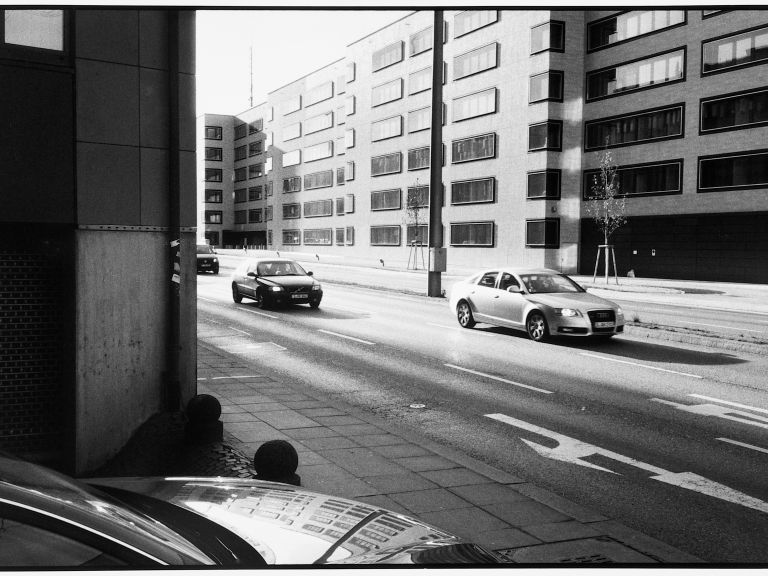Project Detail: La Dolce Vita Made in Germany
Contest:
LuganoPhotoDays 2016
Brand:
LuganoPhotoDays
Author:
michele pero
Project Info
La Dolce Vita Made in Germany
Germany, Italy, Japan. Three countries that, at the end of the Second World War, shared the same destiny. Three countries burned to the ground.
The 1980s. More and more German people spend their summers in the Beautiful Country. Their pockets are full of money. They look like aliens. Every sector of German industry has set the highest quality standards.
My grandfather. He fought in the Second World War. He spent the last months of the conflict in a prisoner-of-war camp in Germany. In spite of everything, he has always shown deep admiration for this country. He would show me items he had brought home from Germany, handling them with care, as if they were collector’s items, one-of-a-kind rarities you could not find in Italy.
My grandmother. During her time in Germany, in 1952, she bought a Rolleicord III, Carl Zeiss binoculars, and a pair of Solingen scissors. Like my grandfather, she took special care with these items, as if they were rare and precious.
I have always been intrigued by all this.
I came into first contact with Germany in the 1990s. It has always struck me as a special country. Scenes from Roberto Rossellini’s ‘Germany Year Zero’ came to mind. Yet, it was journalist Enzo Biagi’s recollections of his journey across Italy after the armistice that affected me the most. Travelling from the south to the north of Italy, he affirmed: ‘I saw a destroyed country, burned to the ground’. Burned to the ground, as both Germany and Japan were at the end of the Second World War. His words clashed with what I thought of my country and my perception of Germany.
Italy, Germany and Japan: three countries that shared a past but whose present could not have been more different.
At the time of my travels, Germany was the unquestioned leader in every industry sector: technology, medical science, chemistry, research, business, and… photography.
Travelling far and wide, from east to west, from north to south, my impression of Germany was that of a highly organised country, whose people were extremely efficient, who worked hard, yet in a seemingly effortless way. Despite this, Germans knew how to relax, enjoy their free time, go to the Biergarten, and have fun with their friends at leisure facilities.
The balance between work and rest allowed them to maximise productivity without sacrificing leisure time. For this reason, I have always felt happy, privileged and relaxed in Germany. I started thinking of this lifestyle as ‘dolce’, sweet. That is when scenes from Federico Fellini’s ‘La Dolce Vita’ came to mind. Perhaps most Italians hold the misconception that German people only think about work and are unable to enjoy what life has to offer outside the office. This is not true. What I have seen has left me astonished, especially in this day and age.
I have travelled extensively throughout Germany, from north to south, from east to west. Mainly for work reasons, less for recreation or photography. I have travelled by car, train, airplane, boat, public transport, and subways. I have never experienced any delays, the public transport vehicles are clean, the motorways are never congested, with some rare exceptions; even so, Germany’s has better congestion levels than Italy. I have met the most diverse people, seen the most different jobs and workplaces, from big industries to small shop or offices.Yet, workers have never showed any signs of being stressed by their work; I have always been welcomed with kindness and hospitality. Almost as if the certainty of tomorrow made everything lighter, easier.
I wondered thinking at the time and effort spent in caring for both the inside and exterior of their buildings, whether they were houses in the outskirts or shops in the most remote forests. The care for the environment is so important that you won’t find billboards alongside the roads. The view is left clear for everyone to enjoy the beauty of the land, as well as for safety reasons, as to not distract drivers. In any bar, from from the centre of Stuttgart to the Bavarian countryside, nobody has made me feel guilty for spending lot of time sitting at their tables and drinking only a coffee.
The citizens care so much about their country, that even the idea of throwing waste paper in the streets is unthinkable. Even if they did, they would be given a commensurate fine, like, for instance, the 10-euro-ticket you will be issued if you don't pay parking in the centre of Stuttgart. I started taking my pictures when I realised that Germany was an unexpected yet pleasant country, far from the stereotype of rational coldness that we Italians hold of it.
Even though Germany is perceived as Europe’s driving force, Germans do not work two jobs to make ends meet, nor do they think about work or productivity all the time. Contrarily to what we may think, German people know how to carve out time and space for themselves, while respecting each other’s privacy. They have free time. They also respect their environment, their cities and countryside. They take care of the res publica as if they would their living rooms. German cities stand out for being clean and efficient; their urban design is bold and astonishing. Despite its boldness, the architecture is accessible to everyone. The roads are kept in perfect condition even in the most remote areas of the country. There are very few road signs, since traffic laws assume that you will drive to be safe. In big cities, buildings are eye-catching: always functional, never useless. Riverside and lakeside resorts are public. If you buy a beer bottle, once you are done drinking it, you can take it back to the brewery, where it won’t be ‘recycled’ but ‘reused’. Germany industrial products have made history, so much so that entire museums are dedicated to them. In Berlin, during the summertime, Gleisdreieck park offers forty-nine beach volleyball courts. You can eat fresh fish everywhere, at food stands, take-aways or markets.
The German high quality of life differs a lot from ours. In my opinion, the sweet Italian lifestyle recalled by Fellini’s La Dolce Vita, is just a myth.
What Germany has taught us is that a welfare society is based on work and cooperation for the common good. That's what I call la dolce vita. This is La Dolce Vita Made in Germany.














